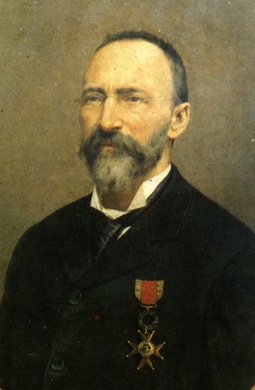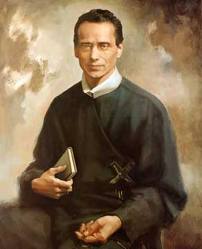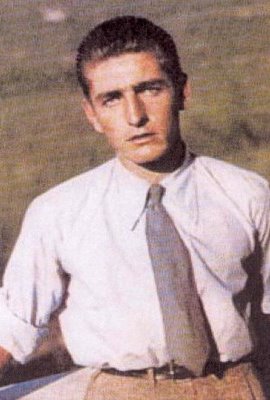Do I ever say, when an occasion of denying myself comes, “It’s too hard, I am no saint?” Might it not be asked of me in justice, “Why aren’t you? It is your business to be one, God intends you should be one, but you are too lazy, you won’t take the trouble.”
Let us remember that we must not drag Christ down to our own level, but rather we must let Christ lift us up to His level.
COMMENT: Fr Doyle’s words today hit where it hurts. We are not saints because we don’t take the trouble to become saints. Sanctity does not mean performing miracles or founding religious orders or even doing great things that will make us famous. It means loving God, conforming ourselves totally with His Will, and doing everything for love of Him. This is difficult, but God provides the grace we need to achieve it. But we ourselves must supply effort as well. Too often we “won’t take the trouble” to do so day after day on a consistent basis.
The liturgical calendar today presents numerous striking examples of holiness, including St Faustina, who receive the visions that are the basis of the Divine Mercy devotion and Blessed Raymond of Capua who was spiritual director to St Catherine of Siena, one of the greatest saints in all of history, and also served as Master General of the Dominicans. Both St Faustina and Blessed Raymond lead dramatic lives and are well known. However, today I want to focus on three less well known but very vivid examples of holiness who, in the words of Fr Doyle, took the trouble to strive for holiness in the very diverse and ordinary circumstances of their lives.
Blessed Francis Xavier Seelos was a German Redemptorist missionary in the United States who died in New Orleans in 1867. He was a renowned healer even during his life and his spirituality was very similar to that of Fr Doyle. His retreat notes and diaries reveal resolutions to sleep on the floor and engage in other ascetical practices to discipline the will. Like Fr Doyle, he was known for his good humour and cheerfulness. Here is a short excerpt from one of his letters:
Every offering has value only insofar as one snatches it away from one’s own benefit dedicates it to God through this self-conquest. One loves and gives precisely because one loves, and because one considers what is given as a good, as a treasure. Love of creatures must be subordinated to the love of God, whom one is pledged to love above all things. Time, in which we have found nothing to offer up to God, is lost for eternity. If it is only the duties of our vocation that we fulfil with dedication to the will of God; if it is the sweat of our faces that, in resignation, we wipe from our brow without murmuring; if it is suffering, temptations, difficulties with our fellow men – everything we can present to God as an offering and can, through them, become like Jesus his Son.
Blessed Alberto Marvelli was a remarkable Italian layman who was killed in an accident on this day in 1946. He modelled himself on Blessed Pier Giorgio Frassati, giving away his clothing, opening a soup kitchen and assisting the poor and homeless in the city of Rimini which had largely been destroyed by bombing raids in the Second World War. He was an engineer who used his professional competence to help rebuild the city. His intense works of charity were nourished by a deep spiritual life. He was also fully engaged in political life, was a local town councillor and was a renowned opponent of the communists. He was fighting an election against communists when he was killed in an accident, aged only 28. There are several books about him published in Italian, along with his spiritual diaries. Alas, I cannot speak the language – I would very much like to read them…

Blessed Bartolo Longo, who was involved in the occult and satanic sects as a young man, and subsequently converted, built the shrine to Our Lady of Pompeii, become a Third Order Dominican and was known as the Apostle of the Rosary
Our third example today is Blessed Bartolo Longo, who had a complete transformation in life. He got caught up in the occult when he was young and became a satanic priest. He experienced a conversion, and became a renowned apostle of the rosary, a Third Order Dominican, a founder of several charitable works and established the famous shrine of Our Lady of Pompeii. He died in 1926. His example shows that nobody is too far gone to be saved by God’s Divine Mercy.
A missionary priest, a young, politically engaged layman and a former satanic priest: the examples we find in today’s diverse feasts show us that anyone from any background can be a saint. As Fr Doyle says to us today:
Why aren’t you (a saint)? It is your business to be one, God intends you should be one, but you are too lazy, you won’t take the trouble.



[…] via Thoughts for October 5 from Fr Willie Doyle […]